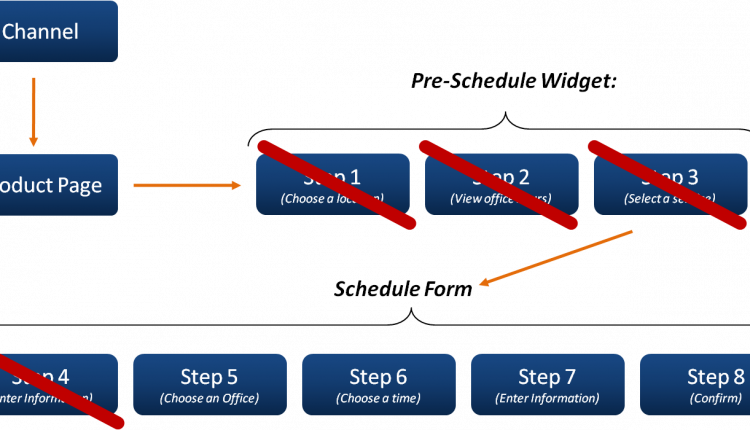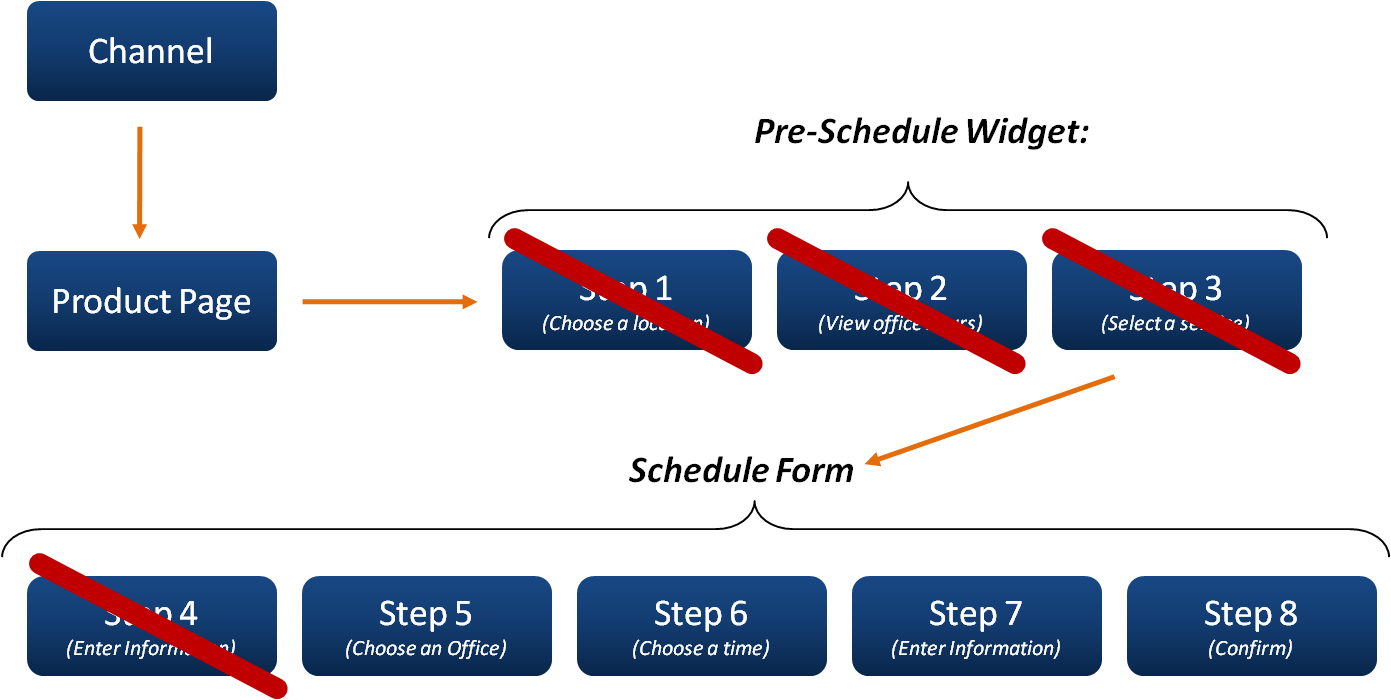Quality traffic is essential for any marketing campaign. Shoot, it’s essential for any successful business. You could have a highly valuable product (let’s say a real cure for male baldness), at the best price (let’s say for just a shipping address with no strings attached), and the most optimized website presentation on the interwebs (let’s say it has undergone a year of MECLABS testing), but despite these advantages, if there are no address-owning bald men who can find your website, well then your business will look a lot like me trying to drive a stick-shift.
Ok, crazy example, but the point is this: Quality traffic is essential.
The question for marketers is – where can we find the most quality traffic on the Web? Should we work with Pay-Per-Click (PPC)? Is it smart to invest in social media? Will external website banner ads be worth the costs? There are many options out there, but today, I want to bring your attention to an experiment that compared the traffic quality between two of the most common online channels: PPC vs. Banner Ads.
Now, explaining this test will be a little more tedious than usual because it deals with multiple experiments of a unique multi-step conversion funnel. But, rest assured, if you can just get a bird’s eye view of the optimization strategy, that viewpoint will be sufficient for what I am talking about in this post.
The first experiment
With that said, the company we were working with is a consumer service provider that has both a significant online and offline presence. The goal on their website is to have visitors schedule onsite appointments with a brick-and-mortar store located nearby. This included choosing a store, choosing a time, and filling out some basic information. It was this process we were seeking to optimize.
Immediately, we noticed that the original online scheduling process had significant unnecessary friction. As the process stood, it took each visitor a series of eight steps to make an appointment. Many of the steps were redundant, unnecessary, and even confusing.
So, our first test was a no brainer; we removed four of the unnecessary steps in the process. As expected, this new conversion funnel easily outperformed the original by over 357%.
The second experiment
Now, this increase was for homepage traffic and we wondered what kind of improvement this new conversion funnel would have across other channels (traffic sources) for their website. The partner was no doubt excited about the potential business the new process might generate site-wide.
But, this is where things get a bit interesting. When testing the new online scheduling process with their PPC traffic vs. their banner ad traffic, we noticed a remarkable difference in results. One of these channels increased conversion by 534%; while the other achieved a comparatively dismal improvement of 28% for such radical changes. Why was there such a swing?
Looking deeper into the numbers, our researchers have attributed the swing to the differing motivation levels of traffic sources. Not all channels will convert at the same rate because they represent different demographics at different places in the conversation. And one of these channels for this partner is obviously more motivated than the other.
Was it the PPC traffic or banner traffic?
So which of these sources of traffic do you think is more motivated? Which of these channels saw the 534% increase and which saw the 28%? It’s very interesting at the least to see the difference that channel quality can have, but could you identify the more effective channel?
UPDATE: If you guessed PPC, you are correct. As we revealed in yesterday’s live web clinic, the PPC ad traffic had the increase of 534%, and the banner ad had the increase of 28%.
Now both were increases, so no complaining there, but it is very interesting to see the significant difference in motivation levels. This test really underscores the importance of understanding and tapping into the unique motivations of specific channels in the conversion process.
Now a huge question that remains is why the difference in response? Is banner traffic always this unmotivated? Is PPC traffic always the motivated? I’m sure it depends on the scenario, but I want to hear what you think. When and why will PPC ads outperform banner ads?
Related Resources:
Top Lessons from 2010: What worked and what didn’t in the last 365 days of experimentation
Online Marketing: Your peers’ top lessons from 2010
This Just Tested: How PPC specificity drove 21% more clicks and cut costs 66%







PPC should have the higher conversion rate.
Why? In my opinion designing ppc ads forces you to be precise in describing the product/service offered PLUS your PPC ad is reacting to key search phrases which implicate you are already interested in this topic
Banner ads are more like a spreadshot and tend to include catchy (read: not-precise) phrasing
We’ve always seen better response and conversion rates from PPC ads by a significant margin. My guess is PPC responded better as well.
I’d really like to see all the factors here, such as what banners and PPC ads were used. If the banner is just picture of the store and a vague tagline, then of course a lot of the traffic will be unqualified and convert less.
I would still assume PPC has a better conversion rate, simply because the end-user has to type what he or she is looking for, instead of viewing a banner ad where there is not necessarily real motivation to have a need filled.
Here’s my question: What were the ROI differences between the two? If your PPC cost $7 a click and banner ads were so cheap they averaged $0.30 a click, then it becomes a very different story. I’d still bet PPC had a better ROI, but this information is definitely worth posting. Thanks!
–Dan
Dan,
Those are great questions and I wish I could answer them all for you, but due to some partner confidentiality, I am somewhat limited in what I can reveal from this test. I can tell you this about the banners though; they were neither poorly designed nor cheap, as they were designed and placed by a high-end well-trained agency.
As far as the actual costs of the channel, I cannot give you specifics other than to say that as you guessed it, the PPC ads did have a significantly higher ROI than the banners, especially after the test.
You do make a great observation about the different user engagement involved by each channel and how that might impact motivations. I think you are right to say that since a PPC visitor is more involved, then they will in turn have more motivation than those coming in from banner ads. Leads to a great research question: How does user involvement affect user motivation?
I appreciate the comment, and sorry I can’t provide more info.
Thanks,
Austin
We sell banner ads on our web site that operates as a serch engine service by paid subscription for construction leads.
Over a three month period I had one particular that made over 775,000 impressions, and netted 558 click throughs. In the same period of time the customer also conducted a paid search ppc google ad. It too netted 550 click throughs, however I have no data for the number of impressions the google ppc ad made. There were no sales attributed to either ad, just inquiries.
The banner ad sold for $2250 per month and I believe the PPC ad sols for $2.25 per click through.
The customer of course made the point that his ad with us was 1,000 time more expensive to produced the same results of his paid search ppc ad with google search.
my arguement, the number of impressions that were made on the targeted group focused group, and the residiual effect of repeated impressions. I used an analogy that compared a sledge hammer, a jack hammer and Pile driver. I was able to get a dollar value per impression established which enabled me to show an overall cost differrence of $136.00 but failed to keep the business.
For me this is a no-brainer and pretty obvious that PPC will outperform banner ads.
We are looking at two totally different mindsets here. Banner ads are interrupt marketing. These prospects were (for the most part) not looking for the product or service and were interrupted from whatever else they were doing.
By contrast the PPC prospects were actually searching for the product or service or at least something closely related. They are therefore by definition much more motivated.
Even taking this into account you could argue that the increase in conversion rates should be similar. I believe that with the banner ad conversions you are only getting the highly motivated or people that have pretty much mad their decision and it is now more of a timing factor. As these people are already so motivated they will happily go through the extra steps and therefore removing these steps has much less of an impact.
I think the conversion from PPC will always be higher for the simple reason that PPC means someone searched for a product or a service and your add came up so he clicked on it.
While clicking on a banner only means that the person may have a general interest but wasn’t necessarily willing to take action.
Intiially if the banner didn’t pop out he won’t have searched for this productor service.
The difference is in the origin of the click. PPC the client searched for the product, banners the product came to the customer.